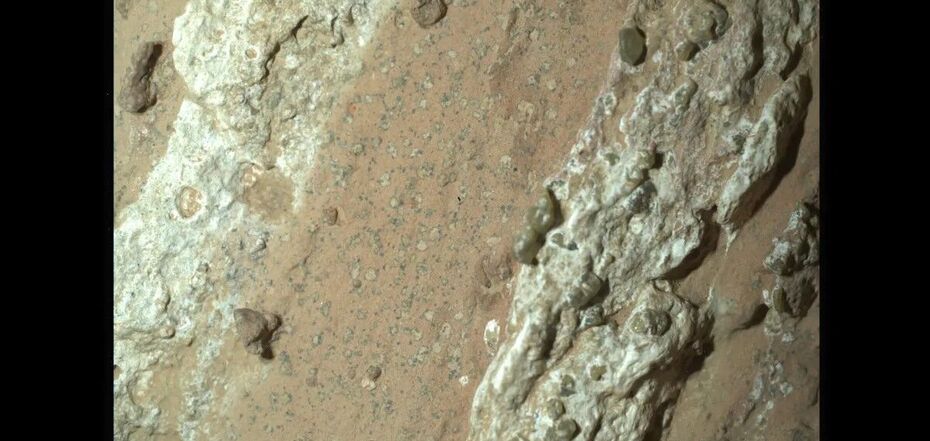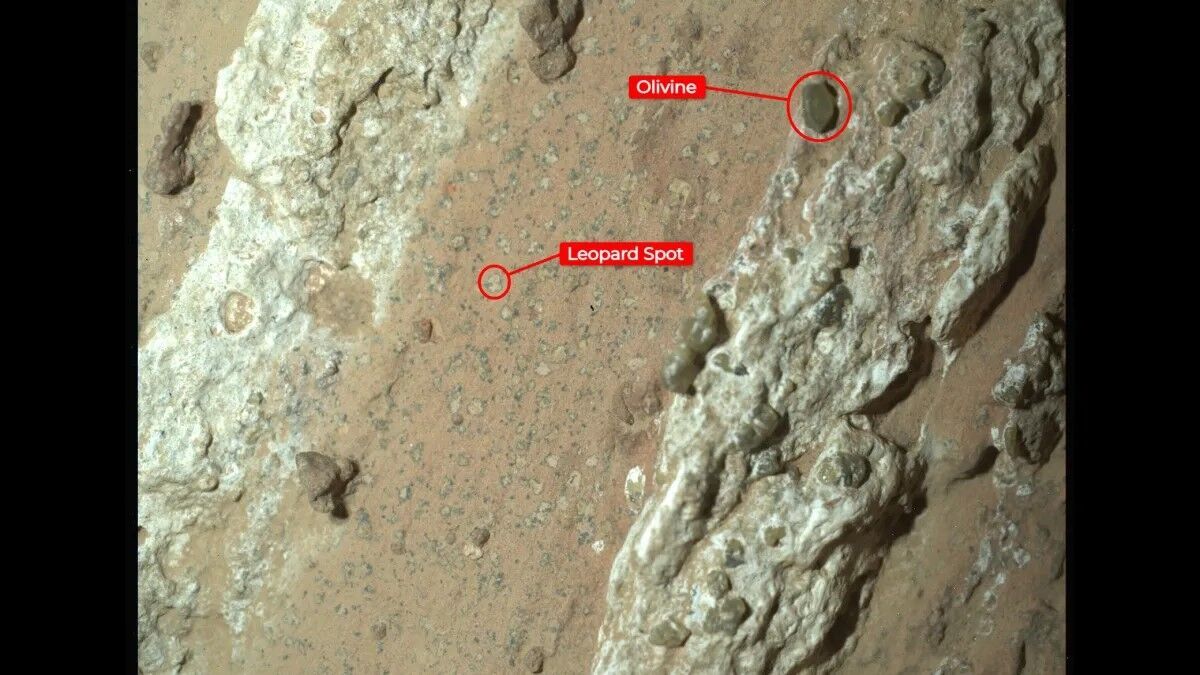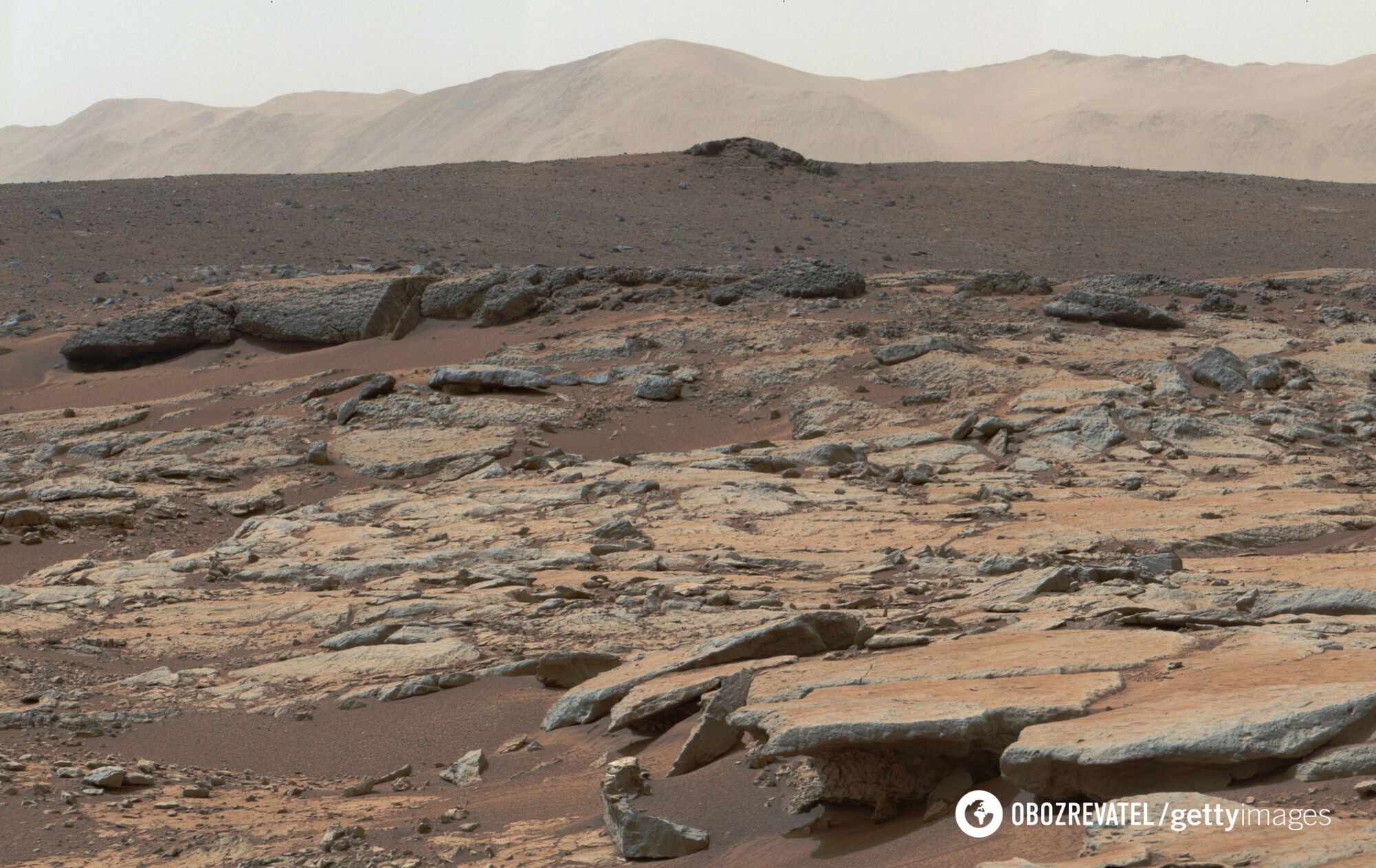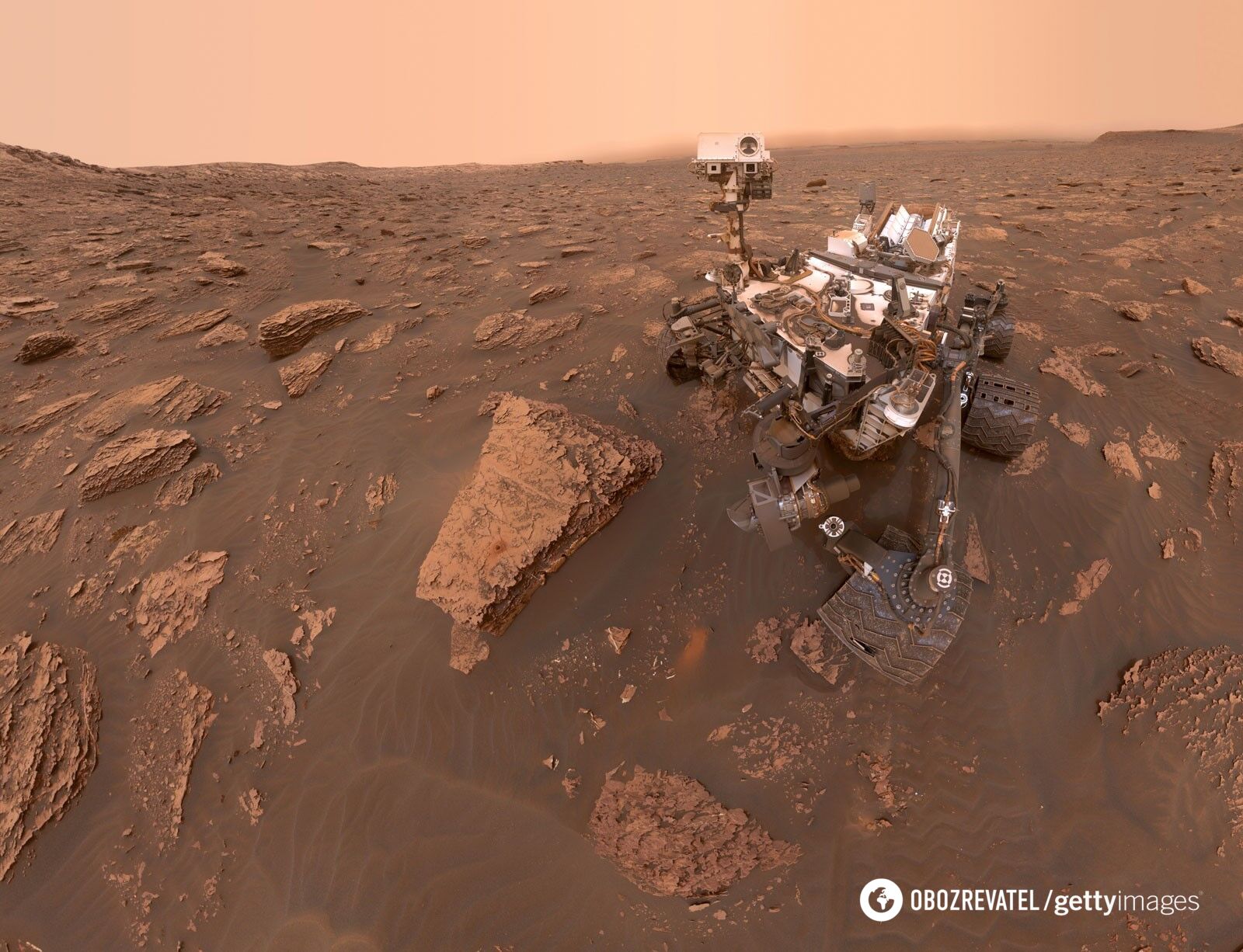News
Possible signs of ancient life have been found on Mars. Photo
NASA's Perseverance Mars rover has discovered possible signs of ancient life on the Red Planet. The six-wheeled geologist found layers on the rock that could have been living microbes billions of years ago.
The rock called Cheyava Falls has a chemical composition and structure that could have been formed by ancient life on Mars. However, scientists do not rule out non-biological processes, Space.com reports.
According to NASA, the Mars rover Perseverance has stumbled upon an interesting arrowhead-shaped rock that contains chemical signatures and structures that could have been formed by microbial life billions of years ago, when Mars was much wetter than it is now.
Inside the rock, which scientists have named "Cheyava Falls," the robot's instruments have detected organic compounds that are precursors to the chemistry of life. Along the entire length of the rock are veins of calcium sulfate. These mineral deposits indicate that water once passed through the rock.
The rover also found dozens of spots, each surrounded by a black ring that mimics the appearance of leopard spots. These rings contain iron and phosphate, which can also be seen on Earth as a result of chemical reactions driven by microbes.
"These spots are a big surprise. On Earth, such features in rocks are often associated with fossilized chronicles of microbes living deep down," David Flannery, an astrobiologist and member of the Perseverance science team at the Queensland University of Technology in Australia, said in a statement.
While both the organic matter and the "leopard spots" are of great interest, they are not the only aspects of the Cheyava Falls rock that have puzzled the science team. Scientists were surprised to find that these veins in the rock are also filled with millimeter-sized crystals of olivine, a mineral that forms from magma. The olivine may be related to rocks that formed further up the river valley rim, which may have been formed by magma crystallization.
"We've never seen these things together on Mars before," added Perseverance team scientist Morgan Cable.
According to the scientists, the rover examined the found rock using lasers and X-rays. It also took pictures of it day and night from all possible angles.
To fully understand what really happened in the ancient river valley billions of years ago, scientists are eager to bring a sample of Cheyenne Falls to Earth, where it can be thoroughly examined with powerful tools that are not available in the limited Perseverance kit.
However, the comprehensive attempt to return samples from Mars has faced many obstacles in recent months after its costs soared to $11 billion. Therefore, NASA is looking for alternative cheaper options to solve the problem of delivering the collected samples to Earth.
Only verified information is available on the OBOZ.UA Telegram channel and Viber. Do not fall for fakes!






























